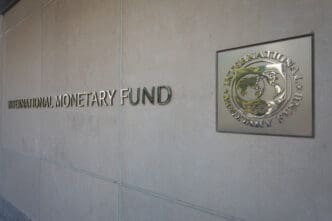Executive Summary
The Story So Far
Why This Matters
Who Thinks What?
International Monetary Fund (IMF) Managing Director Kristalina Georgieva expressed concern on Friday regarding potential trade restrictions on rare earths between the United States and China, cautioning that such a cutoff would significantly impact global economic growth. Speaking at the annual meetings of the IMF and World Bank in Washington, Georgieva underscored the fragility of the world economy amidst ongoing geopolitical tensions.
Global Economic Outlook and Rare Earths
Georgieva emphasized that any disruption to the flow of rare earths, which are critical for various high-tech industries globally, would have a “material impact” on growth. She noted that such a scenario would exacerbate uncertainty and further weaken an already challenged global economic outlook. The IMF chief described a pervasive “sense of anxiety” within the global financial community, attributing it to the world economy performing below necessary levels.
She characterized the current economic environment as being overshadowed by a “dark cloud of uncertainty” that has become the “new normal.” Her comments highlight the significant risk that trade disputes, particularly involving strategically important resources like rare earths, pose to global stability and prosperity.
Climate Finance Commitments
Separately, French development minister Eleonore Caroit affirmed France’s unwavering commitment to the World Bank’s climate finance goals. Her statement, also made on Friday during the annual meetings, underscored a divergence from the Trump administration’s stance on global climate initiatives.
Caroit indicated that France would continue to advocate for the global lender to maintain its robust climate agenda. This commitment comes despite what she described as pressure from President Trump’s administration on the World Bank to abandon these environmental objectives.
Key Takeaways
These statements from the IMF and French officials underscore a period of heightened global economic and political uncertainty. They highlight the dual challenges of managing critical supply chains and sustaining international climate initiatives amidst shifting geopolitical dynamics and differing national priorities.








